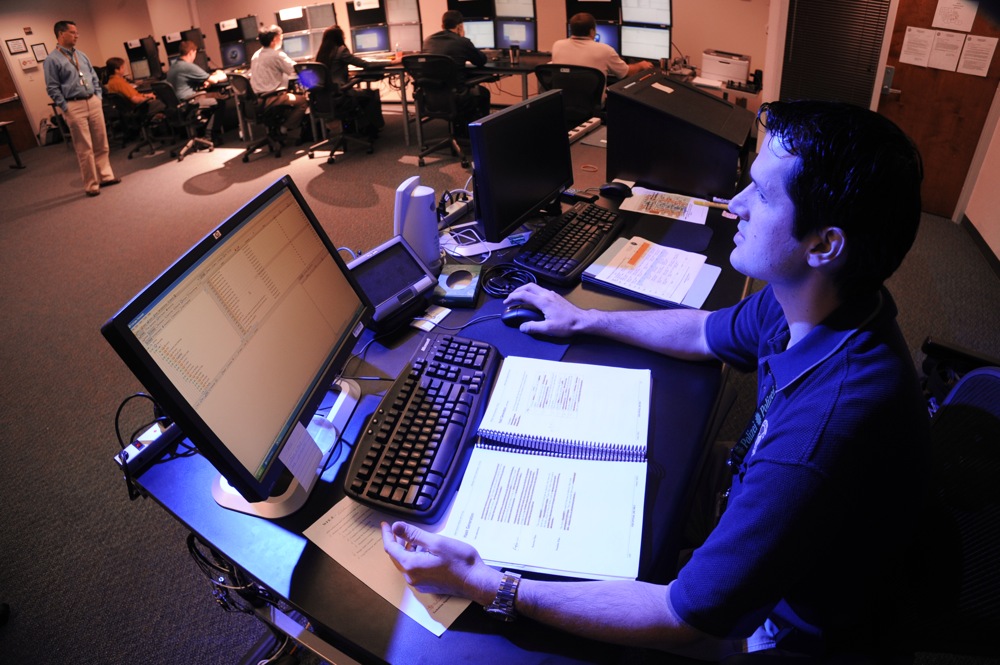US Air Force Adding 1,200 Jobs to Cyber Defense Program

Get the world’s most fascinating discoveries delivered straight to your inbox.
You are now subscribed
Your newsletter sign-up was successful
Want to add more newsletters?

Delivered Daily
Daily Newsletter
Sign up for the latest discoveries, groundbreaking research and fascinating breakthroughs that impact you and the wider world direct to your inbox.

Once a week
Life's Little Mysteries
Feed your curiosity with an exclusive mystery every week, solved with science and delivered direct to your inbox before it's seen anywhere else.

Once a week
How It Works
Sign up to our free science & technology newsletter for your weekly fix of fascinating articles, quick quizzes, amazing images, and more

Delivered daily
Space.com Newsletter
Breaking space news, the latest updates on rocket launches, skywatching events and more!

Once a month
Watch This Space
Sign up to our monthly entertainment newsletter to keep up with all our coverage of the latest sci-fi and space movies, tv shows, games and books.

Once a week
Night Sky This Week
Discover this week's must-see night sky events, moon phases, and stunning astrophotos. Sign up for our skywatching newsletter and explore the universe with us!
Join the club
Get full access to premium articles, exclusive features and a growing list of member rewards.
The United States Air Force is shoring up its cyber defense efforts by adding more than 1,200 new airmen to posts within the cyber community.
The service people, who will be added over the next few years, are part of a broad attempt to improve the nation's overall cyber defense, or protection against attacks against computers and computer networks, Air Force officials said. The extra personnel will also help tackle one of the department's biggest challenges: poring through the massive amounts of collected data.
"This is a big data problem on steroids," said Lt. Gen. Robert Otto, deputy chief of staff for intelligence, surveillance and reconnaissance, according to Military.com. "If you look at the amount of data that is transmitted every day, it is going to take a tremendous amount of investment."
By strengthening the Air Force's cyber strategy, the military will be able to better support the wider intelligence-gathering community, Otto added.
"This is an exciting time for cyber military planning," he said. "We will see a lot of progress over the next few years."
Yet, the current fiscal environment has created uncertainty throughout the military, even as efforts within the cyber realm continue to grow.
"It is a delicate balance between efficiency and effectiveness," Lt. Gen. Michael Basla, the Air Force's chief information officer, told Military.com. "We will strive to bring greater capability to our warfighters with cost in mind. The demand for full-spectrum cyber capability across the department has increased significantly."
Get the world’s most fascinating discoveries delivered straight to your inbox.
To help meet the country's cyber defense needs, the Air Force is currently trying to identify weaknesses in their current systems.
"We're doing reviews of vulnerabilities of every network," said Gen. William Shelton, commander of the Air Force Space Command.
This includes safeguarding government information while also building new systems to use in the future.
"We want to ensure that Air Force IT capabilities are designed to support Air Force missions and effectively integrate with the joint community," Basla said.
Follow Denise Chow on Twitter @denisechow. Follow LiveScience @livescience, Facebook & Google+. Original article on LiveScience.

Denise Chow was the assistant managing editor at Live Science before moving to NBC News as a science reporter, where she focuses on general science and climate change. Before joining the Live Science team in 2013, she spent two years as a staff writer for Space.com, writing about rocket launches and covering NASA's final three space shuttle missions. A Canadian transplant, Denise has a bachelor's degree from the University of Toronto, and a master's degree in journalism from New York University.
 Live Science Plus
Live Science Plus










